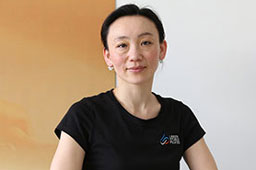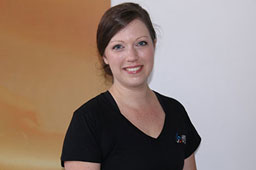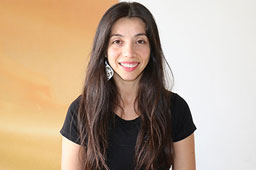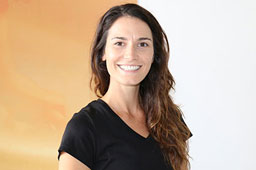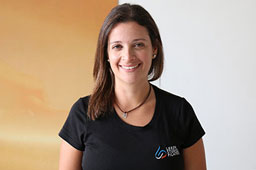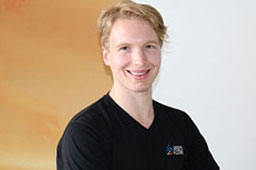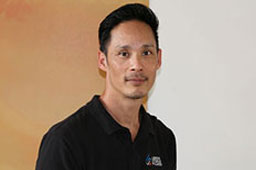 In 1912 at the age of 32, Joseph Pilates moved to England and became a professional boxer, circus performer, and self-defence trainer for Scotland Yard. In 1914, the world was at war and Mr Pilates was interned in the Lancaster camp as an “enemy alien”. Mr Pilates refined his ideas about health and bodybuilding, and developed a conditioning program based on a series of exercises performed on a mat, which he later named “Contrology”.
In 1912 at the age of 32, Joseph Pilates moved to England and became a professional boxer, circus performer, and self-defence trainer for Scotland Yard. In 1914, the world was at war and Mr Pilates was interned in the Lancaster camp as an “enemy alien”. Mr Pilates refined his ideas about health and bodybuilding, and developed a conditioning program based on a series of exercises performed on a mat, which he later named “Contrology”.
Later, Joseph Pilates was transferred to a camp on the Isle of Man where he continued to explore his knowledge to help care for those injured in war. Without any exercise equipment, Mr Pilates began experimenting with bedsprings so the patients could work with resistance while still bed-bound. This exercise with resistance helped patients recover muscle tone more quickly. The springs attached to the bed base inspired Mr Pilates to develop what we now know as the “Universal Reformer”. He developed other useful apparatus and incorporated “mat work,” to his teaching program for fellow prisoners.
 Although Mr Pilates had many theories about exercise and life, his most dominant philosophy was about being in control of every movement both mentally and physically. His core principles were – Centring, Concentration, Control, Breathing, Precision and Flow.
Although Mr Pilates had many theories about exercise and life, his most dominant philosophy was about being in control of every movement both mentally and physically. His core principles were – Centring, Concentration, Control, Breathing, Precision and Flow.
Joseph Pilates wrote his definition of physical fitness in 1945 and it still holds true today:
“The attainment and maintenance of a uniformly developed body with a sound mind fully capable of naturally, easily and satisfactorily performing our many and varied daily tasks with spontaneous zest and pleasure.”
 LEEON STUDIO PILATES
LEEON STUDIO PILATES




 At Leeon Studio Pilates, we use the Pilates method developed by Joseph Pilates. With some contemporary adjustments to our tailored exercise programs, we continue to be inspired by his practices and principles.
At Leeon Studio Pilates, we use the Pilates method developed by Joseph Pilates. With some contemporary adjustments to our tailored exercise programs, we continue to be inspired by his practices and principles. In 1912 at the age of 32, Joseph Pilates moved to England and became a professional boxer, circus performer, and self-defence trainer for Scotland Yard. In 1914, the world was at war and Mr Pilates was interned in the Lancaster camp as an “enemy alien”. Mr Pilates refined his ideas about health and bodybuilding, and developed a conditioning program based on a series of exercises performed on a mat, which he later named “Contrology”.
In 1912 at the age of 32, Joseph Pilates moved to England and became a professional boxer, circus performer, and self-defence trainer for Scotland Yard. In 1914, the world was at war and Mr Pilates was interned in the Lancaster camp as an “enemy alien”. Mr Pilates refined his ideas about health and bodybuilding, and developed a conditioning program based on a series of exercises performed on a mat, which he later named “Contrology”.  Although Mr Pilates had many theories about exercise and life, his most dominant philosophy was about being in control of every movement both mentally and physically. His core principles were – Centring, Concentration, Control, Breathing, Precision and Flow.
Although Mr Pilates had many theories about exercise and life, his most dominant philosophy was about being in control of every movement both mentally and physically. His core principles were – Centring, Concentration, Control, Breathing, Precision and Flow.

